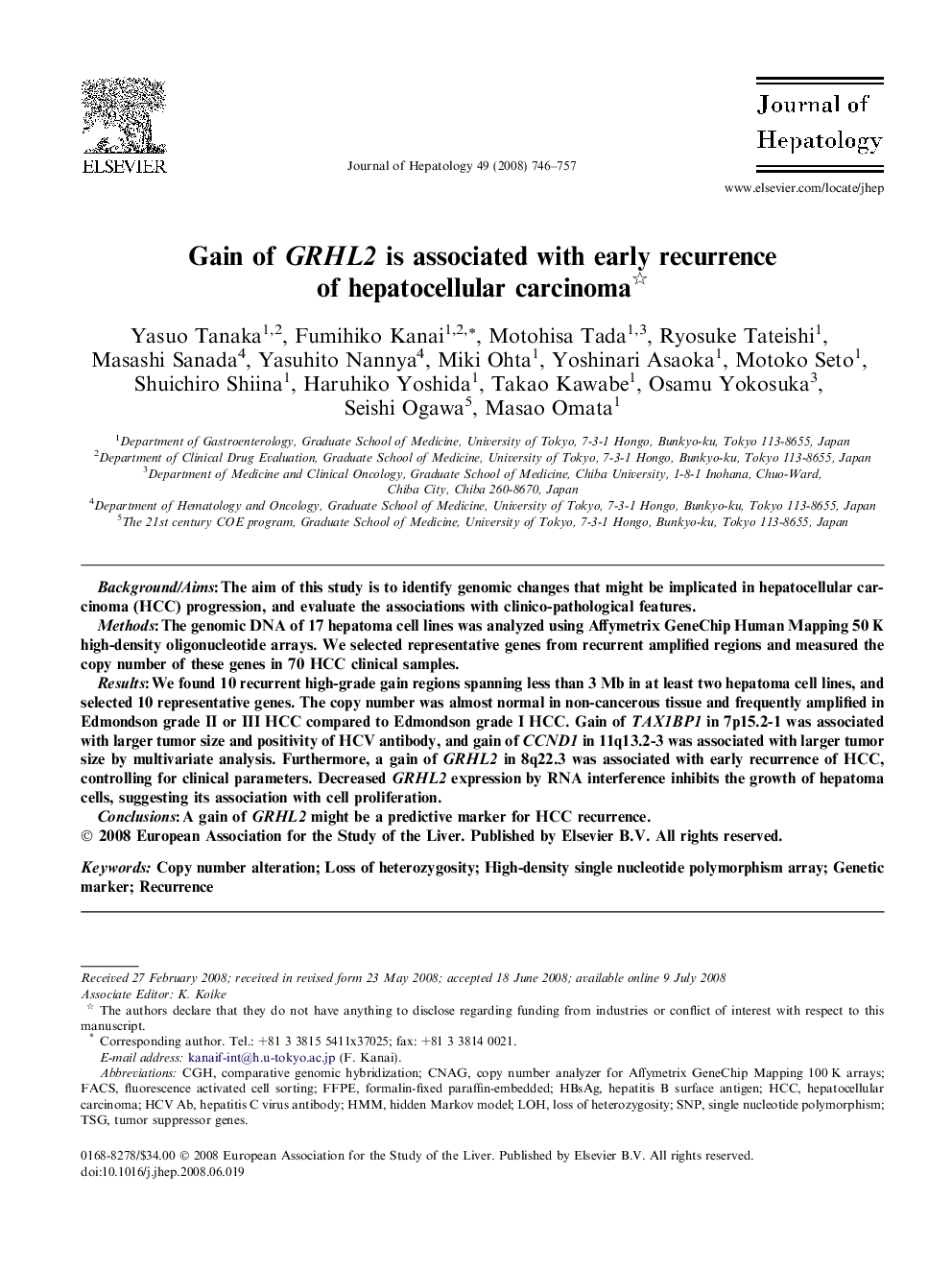| Article ID | Journal | Published Year | Pages | File Type |
|---|---|---|---|---|
| 6110028 | Journal of Hepatology | 2008 | 12 Pages |
Background/AimsThe aim of this study is to identify genomic changes that might be implicated in hepatocellular carcinoma (HCC) progression, and evaluate the associations with clinico-pathological features.MethodsThe genomic DNA of 17 hepatoma cell lines was analyzed using Affymetrix GeneChip Human Mapping 50Â K high-density oligonucleotide arrays. We selected representative genes from recurrent amplified regions and measured the copy number of these genes in 70 HCC clinical samples.ResultsWe found 10 recurrent high-grade gain regions spanning less than 3Â Mb in at least two hepatoma cell lines, and selected 10 representative genes. The copy number was almost normal in non-cancerous tissue and frequently amplified in Edmondson grade II or III HCC compared to Edmondson grade I HCC. Gain of TAX1BP1 in 7p15.2-1 was associated with larger tumor size and positivity of HCV antibody, and gain of CCND1 in 11q13.2-3 was associated with larger tumor size by multivariate analysis. Furthermore, a gain of GRHL2 in 8q22.3 was associated with early recurrence of HCC, controlling for clinical parameters. Decreased GRHL2 expression by RNA interference inhibits the growth of hepatoma cells, suggesting its association with cell proliferation.ConclusionsA gain of GRHL2 might be a predictive marker for HCC recurrence.
